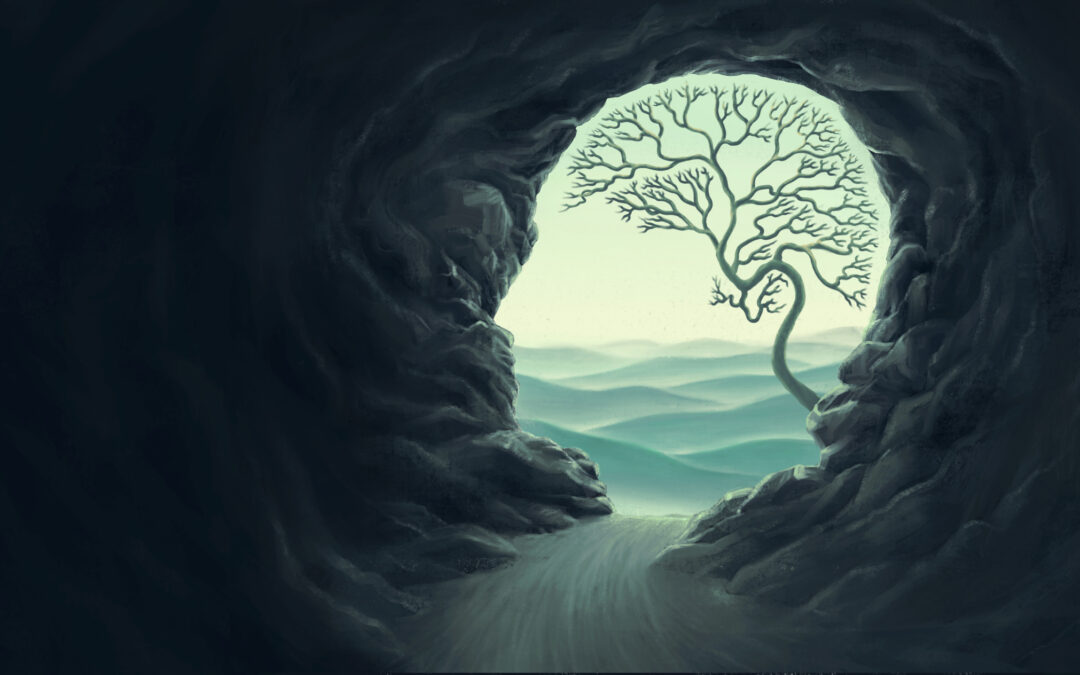When I am among the trees,
Especially the willows and the honey locust,
Equally the beech, the oaks and the pines,
They give off such hints of gladness
I would almost say they save me, and daily.
Excerpt, “When I Am Among The Trees” by Mary Oliver
We live in a world that allows us immediate, constant access to Internet spaces. This offers us accessibility, economic opportunity, entertainment, cultural exchange, education, and productivity. However, for as many benefits as there are, we’re also presented with challenges – Cognitive overwhelm, social isolation, distraction. Worldwide, we spend an average of six hours and 40 minutes per day on screens, and we average five or fewer hours in nature per week.
Research shares with us a wealth of information about how nature is beneficial for our emotional and cognitive health. When we disconnect and get ourselves into nature, we are happier, perform better on tasks, feel more energized, and experience real-time, literal connection to the world around us. The biophilia hypothesis (“biophilia” literally means love of life or love of living systems) suggests that humans have an innate tendency to seek connection with nature and other forms of life. This hypothesis states that spending time in nature triggers a physiological response that lowers stress levels. We have many studies that show humans perform better on cognitive tasks while listening to nature audio, pausing to view nature scenes, and green spaces adjacent to schools boost cognitive development in children. We know that adults perform better on work-related tasks when they, too, have access to green spaces.
Nature helps us feel joy, we become more creative, and moving our bodies further supports the metabolization of emotion. Neuroimaging studies have shown that being in nature activates regions of the brain associated with empathy and emotion regulation.
Back to social media for a sec – It’s important to acknowledge that we often see posts in the Internet space about folks who mountain climb, backpack across countries, and live on sailboats. It’s easy to engage in comparison and think of ourselves as not doing enough when we aren’t able to participate in viral-video-worthy feats. But, the nervous system doesn’t discriminate between the leaf on the tree at the top of the mountain and the leaf on the tree outside of your home.
Nature is everywhere, and can be free or low-cost to access. Some ideas, just to name a few:
- Sitting next to an open window
- Reading a book outside
- Picnicking with a loved one or friend
- Water balloon fight!
- Birding
- Journaling outside
- Hopscotch
- Disc golfing
- Running and/or walking
- Stargazing
- Laying in the grass and watching the clouds
- Gardening

3 Ways to Kindly Say “No” to Invites for Introverts
Life is challenging when you’re an introvert. What are simple interactions for many people can feel anxious and uncomfortable to you. The mere idea of taking part in certain social events can be exhausting and emotionally draining to an introvert. While some social...

Burnout Risk: 10 Signs You’re Addicted to Working
We live in a society that worships the overachiever. Burning the candle at both ends and denying yourself pleasure until the work gets done is seen as honorable. And while having a good work ethic is definitely key to living your best life, it is also important to...

How To Stop Beating Yourself Up
When was the last time you heard from your inner critic? You know, that voice in your head that constantly judges you, puts you down and compares you to others. The one that tells you you’re not good enough or smart enough and says things you would never dream of...

6 Reasons Why Yoga Might Be the Missing Link in Your Mental Health Toolkit
We invited our friend, Eve Parker at Simply Yoga, to share this guest blog, which provides information about the positive impact of yoga on a person's mental health and overall wellness. After reading the article, if you’d like more information about Simply Yoga, we...

5 Ways to Cope with Anxiety as a Parent
The hard work and unpredictability that makes parenting so rewarding can also cause a great deal of anxiety. Here are some simple ways to bring yourself to a place of calm. Make a To-Do List Ruminating on worries can cause lots of stress. Clear your mind by...

